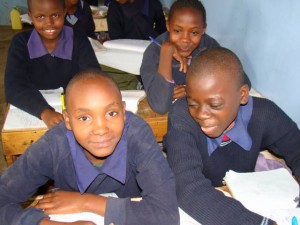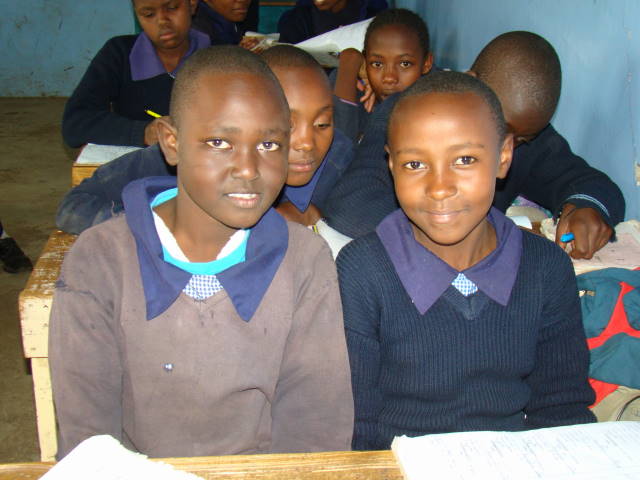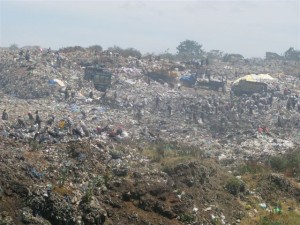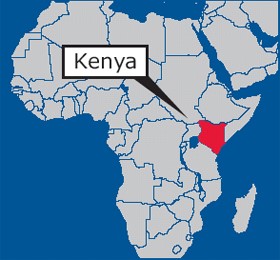Kenya: Korogocho’s trash-pickers
At first, the gigantic garbage dump outside Korogocho slum in Kenya looks as you’d expect: hideous, grey mountains of refuse, rotting in the sun. But as you look closer, you can see something worse. There are people moving, across the landscape of the rubbish, quietly but surely, their dusty clothing camouflaged grey against the backdrop of trash. These are the rubbish-pickers of Korogocho, who live in the nearby slum. With no other way to earn money, hundreds try to glean a small income by picking out paper and scrap metal from the rubbish and selling it. Many of those who walk the trash each day are young, either school dropouts or graduates who found no jobs waiting for them after finishing a few years of high school. “The youth here have little they can do,” an aid worker in Korogocho told Crossroads, “so they collect garbage for food.”
Others solve the problem through crime. Prostitution, drug dealing and theft are attractive options when you feel hungry. The Swahili word ‘Korogocho’ literally means ‘crowded shoulder to shoulder’, and this is how the residents of Korogocho feel. There are 150,000-200,000 people squeezed into just 1.5 square kilometres, with tiny ramshackle homes. Any income must seem worth the slim chance of escaping the slum, where there’s no running water, electricity, garbage service or sewerage.

Children at our partner’s school will have a better chance of escaping poverty once they can continue to high school.
We grieve to hear of the life faced by so many young people in Korogocho, but there’s hope too. Crossroads is working with one NGO that has, for many years, run a tailoring/dressmaking centre and a hair salon, teaching young people employable skills. They have trained approx. 3,500 young people since opening in 1985, most of whom, they say, now have small businesses or jobs working for others. They now want to expand their reach even further, though, with a computer centre which will train hundreds of young people.
The group also runs a primary school (above) but ache to see how few of their primary ‘graduates’ are able to continue to high school. “Many qualify,” they report, “but their parents are unable to support them. So some end up at the dump site. Others end up killed by the police or by mob justice.” In Korogocho, therefore, our partners are opening a high school to help students get the education needed to break this cycle and lift their families out of poverty.
Want to be part of a story like this? We are looking for sponsors for international shipments awaiting funding. Email partnerships@crossroads.org.hk if you or your organisation can help!

Kenya Snapshot
Capital: Nairobi
Population: 45.55 million. About half of the population is under 18.
Population below international poverty line of US$1.25 per day: 44%
There are 1.6 million people living with HIV/AIDS , 1 million children orphaned because of AIDS, and 2.6 million orphans in total.
More than a quarter of children are involved in child labour, mostly in agriculture, but also in the mining industry.
South Africa: Investing more in slum communities
WHO IS THIS SHIPMENT HELPING? In a slum on the outskirts of a South African city, a community group reached out to...
Sierra Leone: Investing in the nation's future
After the end of Sierra Leone’s extended civil war, a group of people who wanted to help the country rebuild decided...
Ukraine: The poor help those even poorer
Crossroads’ Ukrainian partner has, for many years, been working to bridge the gap between rapidly developing cities and rural communities that...




